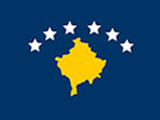EU split on Kosovo independence
By Michael F Harsch for ISN
The European Union suffered a serious defeat on 8 October when the UN General Assembly adopted a Serbian drafted resolution which asks the International Court of Justice (ICJ) for its opinion on whether Kosovo's declaration of independence was legal.
In the weeks before the General Assembly vote, EU officials had called the initiative "external pagenot helpfulcall_made" for Serbia's aspirations to join the Union, pressuring Belgrade to withdraw its resolution. However, the Serbian government did not back down, and the resolution was approved by a vote of external page77 in favor to 6call_made against, with the US being one of the few opponents.
Most EU members were among the 74 countries which abstained from the vote, as the Union could not credibly argue against Serbia's right to appeal to an international court. However, EU countries could not agree on a common abstention, despite various calls for European unity. Fearing that Kosovo's recognition might spur separatist movements in their own countries, Slovakia, Spain, Romania, Cyprus and Greece (worrying about an eventual secession of the Turkish occupied area in the north of Cyprus) even voted with Serbia.
The ICJ will render only an "advisory opinion," which is not legally binding. But the majority of EU member states fear that a pending court decision could hold back countries from recognizing Kosovo in the next few years. Even worse, a negative ruling would be a disaster for the Union's credibility on the global stage, as it likes to present itself as a champion of international law.
When most EU countries backed Pristina's declaration of independence this February, it was supposed to demonstrate European external pageleadershipcall_made on Kosovo. Instead it has become another demonstration of Europe's difficulty to speak with a single voice on crucial foreign policy issues.
Thus far, the campaign for Kosovo's independence has only been a very limited success, with just about 50 states having recognized the Wales-sized territory. Western efforts received new impetus on 10 October when Kosovo's neighbors Montenegro and Macedonia recognized the country and Martti Ahtisaari, who authored the external pageplancall_made for Kosovo's "supervised independence" as UN special envoy, won the Nobel Peace Prize.
But these recent developments cannot hide the fact that about 140 UN members continue to refuse to recognize Kosovo, including five EU countries. Spain even actively external pagelobbiedcall_made in Latin America against Kosovo's recognition.
On the ground in Kosovo, the EU's image is equally scattered. Brussels doesn't have one main representative in Kosovo, but three, reflecting the complicated institutional structure of the EU. Italy's Renzo Daviddi heads the European Commission's Liaison Office, while French General Yves de Kermabon is chief of the EU Rule of Law Mission (EULEX). The Dutch Pieter Feith, finally, holds the post of the EU Special Representative in Kosovo. Making things even more awkward, Feith acts simultaneously as the International Civilian Representative, representing states like the US which support Kosovo's independence.
Given the EU's disunity on Kosovo's independence, Feith has to remain "status neutral" as EU special representative, while he is chief lobbyist for Kosovo's independence in his other function. One needs little more than common sense to understand how deeply flawed that institutional setting is.
If a common European foreign and security policy is ever supposed to have a significant impact on world politics, the member states will have to overhaul the Union's decision making process. If Council decisions required only the support of a majority of states, then the EU's position on the question of Kosovo's independence would be clear. Unanimity, on the other hand, does not work with 27 members, especially if there is no predominant power present like the US in NATO.
The adoption of institutional reform as embodied in the external pageLisbon treatycall_made might go some way in repairing the EU's faulty design by creating a "European foreign minister." However, the treaty's ratification has been put into question by the Irish "no" vote in June, and even if adopted it would not change EU voting rules in the field of foreign and security policy.
The prospects for quick fixes are thus rather bleak. If, however, European policy-makers need a further push for reform, they should simply remember how poor the EU is performing on the issue of Kosovo.

